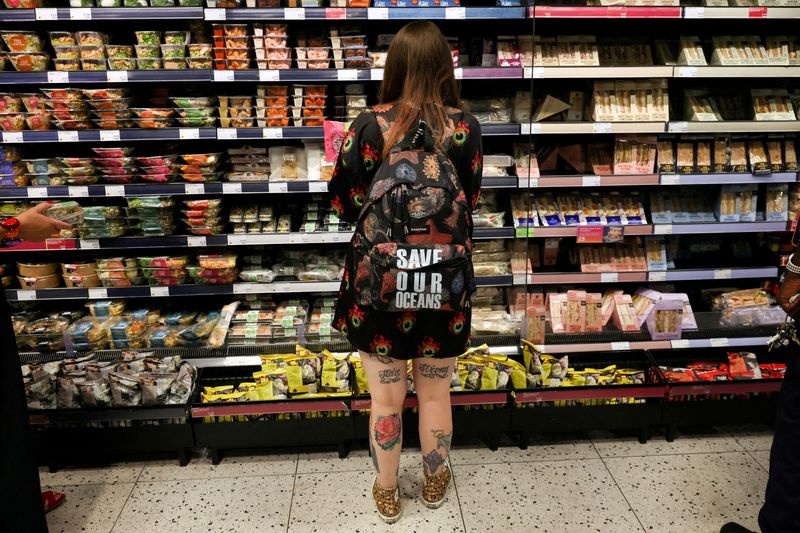By Suban Abdulla
LONDON (Reuters) - British retail sales growth slowed to a seven-month low in May as soaring food prices prompted shoppers to rein in spending on non-essential items and dashed hopes of a boost from three public holidays, the British Retail Consortium said on Tuesday.
The BRC said spending in its members' stores increased 3.9% in annual terms last month, well above the 1.1% fall a year ago. However, sales were below the 5.2% rise in April.
May's retail sales growth was the slowest since the 1.6% recorded in October 2022 when consumers cut back on purchases as inflation soared to a 41-year high of 11.1%. The BRC data is not adjusted for inflation, so May's sales growth reflects a fall in the volume of goods purchased.
Food was almost the only area where consumers spent more last month, due to higher prices as well as celebrations to mark the coronation of King Charles.
"The wild card for the retail sector remains uncontrollable food inflation, which shows little sign of coming down in the near future, and this is having a significant knock-on effect on non-essential spending," said Paul Martin, UK head of retail at accountants KPMG, who sponsor the data.
Official figures showed consumer price inflation fell less than expected in April, while food price inflation remained near a 46-year high at 19.1%, raising markets' bets that interest rates will peak at 5.5% later this year.
The Bank of England, which is expected to increase Bank Rate to 4.75% from 4.5% on June 22, has said it will keep raising interest rates if inflation looks persistent.
The BRC said retail sales in May were 3.7% higher on the year on a like-for-like basis - a measure favoured by equity analysts which adjusts for changes in retail space, down from 5.2% growth in April.
Separate figures from Barclays (LON:BARC) on Tuesday also showed high inflation and rising food prices continued to eat away at consumers' spending power.

Barclays said consumer spending on payment cards rose by 3.6% year-on-year in May, of which spending on groceries increased 8.9%, the highest growth in the category since February 2021 when it stood at 27.0%.
"Although the latest headline figures show that inflation has fallen due to lower energy prices, the prices of core services and goods remain stubbornly high and continue to constrain real household disposable income and spending," Barclays economist Silvia Ardagna said.